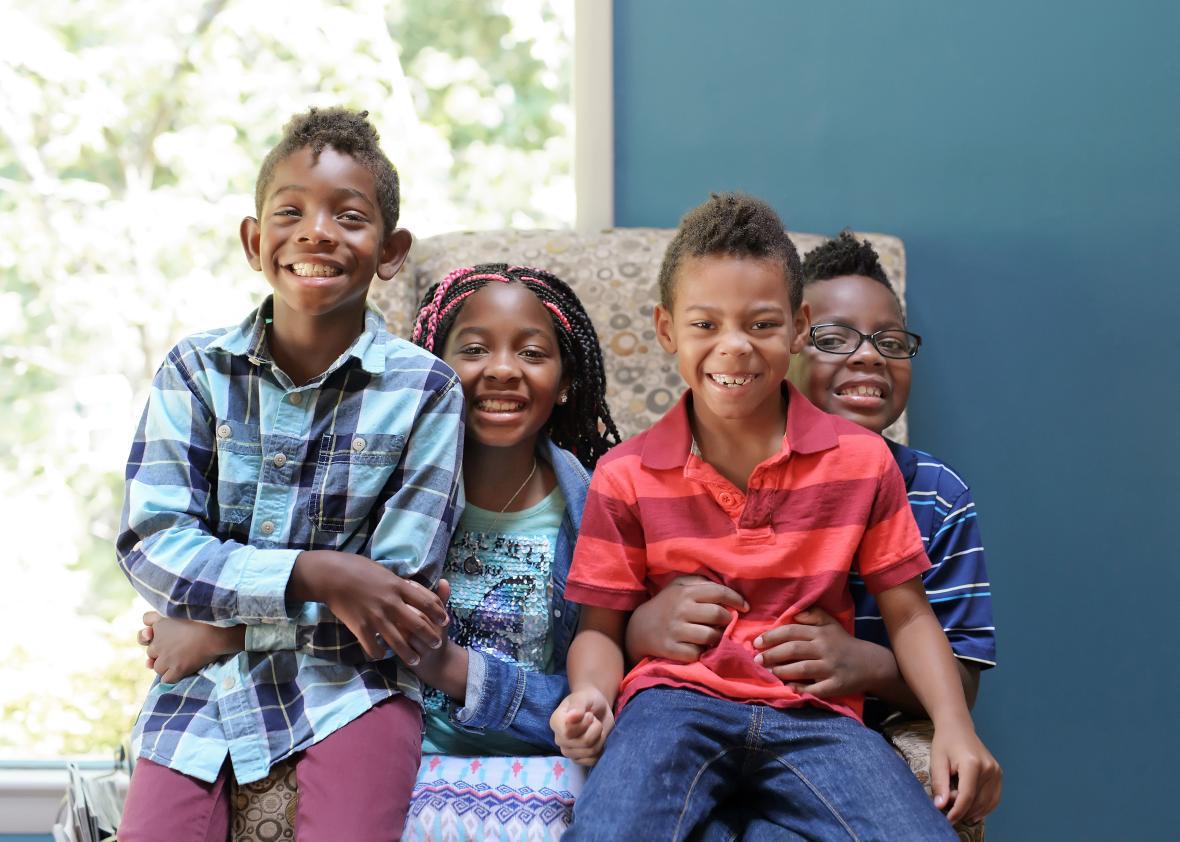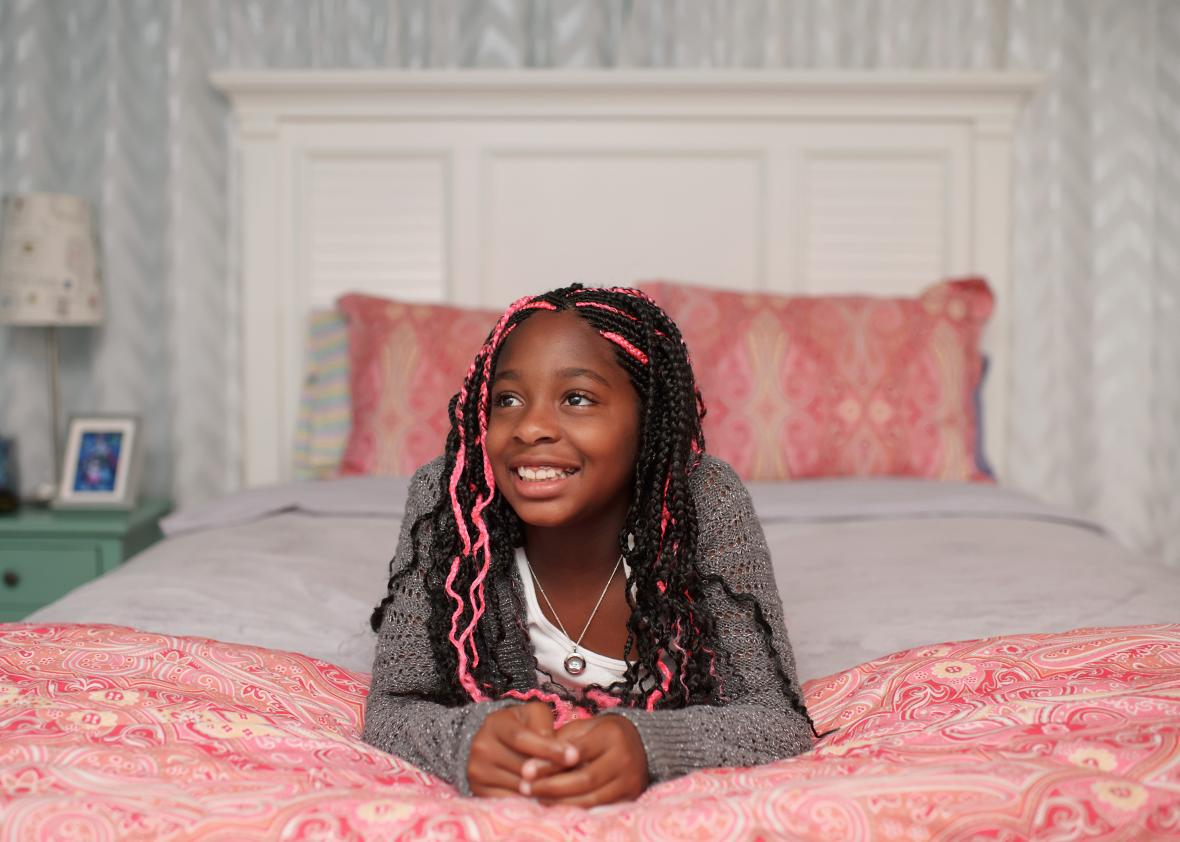Rob and Reece Scheer weren’t courting controversy when they allowed American Girl magazine to write a feature on their daughter, Amaya. The article was gentle and inspirational, focusing on Amaya and her three siblings—also adopted out of foster care—as well as the Scheers’ charity, Comfort Cases, which supplies foster children with amenities. But after the piece went to press, anti-gay group One Million Moms fomented a backlash, criticizing American Girl for highlighting “sins” and “pushing the homosexual agenda to children” and encouraging supporters to boycott the magazine.
On Thursday, I spoke with Rob Scheer about his family, his charity, and the reaction to American Girl’s unexpectedly contentious profile. Our interview has been lightly edited and condensed.
How did the article on your family come about?
In March of 2015 I was at D.C. Child and Family Services speaking to a group about giving back to the community by helping kids in foster care. I talked about my daughter, Amaya, who we adopted through foster care and who helps with our charity. When the speech was over, a writer for American Girl came up to me and said she’d be interested in writing a story about my daughter. I said sure, so we set up an appointment, and she came out to my farm and interviewed Amaya for a few hours. She told me I had the most amazing daughter—which I already knew—and said she was excited to write the story.
Then our lives went on. When you have four kids, things stay crazy.
When did you first see the finished article?
About three weeks ago, we received a FedEx package in the mail. My husband called me at the office and said, “I think the magazine is here. We’ll wait to open it until you get home from work.”
When I got home, everybody sat around and my daughter opened the box. I asked my daughter if she wanted to read the story to us. She said, no, she couldn’t, and asked me to do it. After reading the first line, I started crying. I just bawled. My daughter started crying, too, so then I started to feel bad. I said, “Why are you crying?” She said, “These are happy tears, Daddy.” She was so happy to think she might have helped even just one kid in foster care.
When did the backlash begin?
Once the magazine came out, the phone calls—the hate calls, I should say—began. I know the word fag. I’ve heard people say it. But I’ve never had the word fag said to me so many times. The worst call was from a woman who told me she started a prayer group for us. She said, “We’re praying for all of you—and we’re praying for those boys, who we know the two of you are raping every night.”
After that, we sat down our kids and said, “Listen, we can close our curtains, shut the front door, turn off our phones, ignore our emails, wait a couple days, and let this blow away.” My kids said, “Are you kidding me? We’re Scheers. We lead by example. We have to stop these people from saying nasty things about our family.” I said, “If that’s what you want, then that’s what I’ll do. Whoever wants to talk about it, we’ll talk about it. We’re going to let people know that this article wasn’t about two gay men and their four kids. It was about my kids giving back to their community. And it was about foster children—which is something nobody ever talks about. It just so happens that these former foster children have two dads.”

Photo by Joyce Smith Photography/Rob Scheer
What happened once the media began reporting on the controversy?
It was amazing, all the love we got. Not just the love from our community—we knew they loved us—but the love from all over the world. People from Australia and England and Brazil and Canada, sending us emails, sending money to our charity. FedEx packages have been arriving daily with stuff to go into the comfort cases. People tell us, “We want Amaya to know that she is an amazing young lady.” That to me has been unbelievable.
Tell me about Comfort Cases, your charity.
I grew up in foster care. I still remember being a 17-year-old kid, carrying a trash bag, homeless, living on the street, hoping the taco place left the bathroom unlocked so I had a place to sleep at night and a place to study. Still today, when kids come into foster care, they’re given a trash bag with nothing but torn and tattered clothes. Now I try to make sure every kid in foster care gets a comfort case with a new toothbrush, shampoo, soap, pajamas, an activity, and a book.
When we first fostered my daughter, we took her shopping and bought her new toys—but she never smiled. Then, that first night, after she took a bath, she stood in her bedroom looking at the three nightgowns my husband had laid out for her. She picked up a nightgown, took the tag off, and smiled for the first time. I said, “Amaya, why are you smiling?” She said, “I’ve never owned a new nightgown before.” That’s not acceptable. So we make sure that we put a brand new pair of pajamas in every single case.
As a businessman raising four amazing kids from foster care, I want people to know it’s OK to talk about foster care. I want foster kids to understand that they have an opportunity to make something of themselves. Only 3 percent of kids in foster care go to college. Maybe if we told these kids how much we cared about them and believed in them—maybe if we didn’t give them a trash bag when their lives have been torn upside down—the stats would change.
Your kids really hit the family jackpot.
No—my husband and I did.
